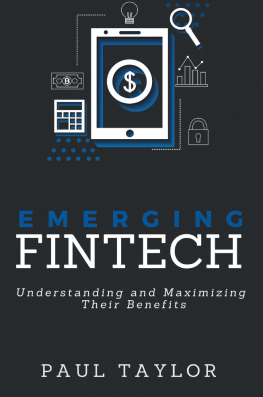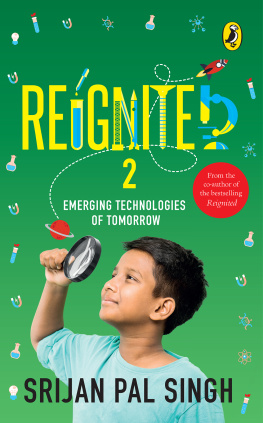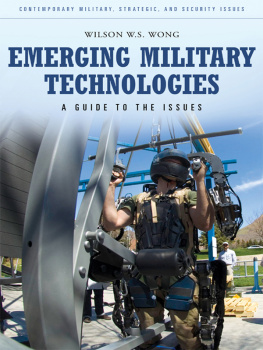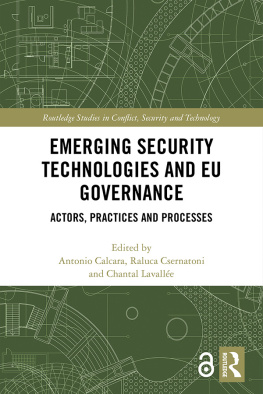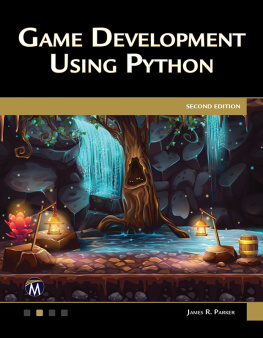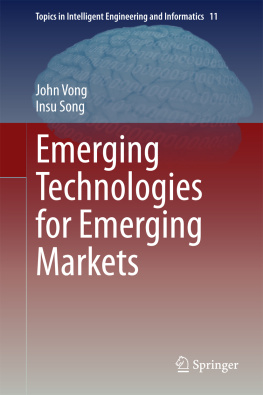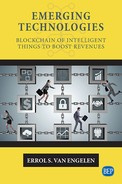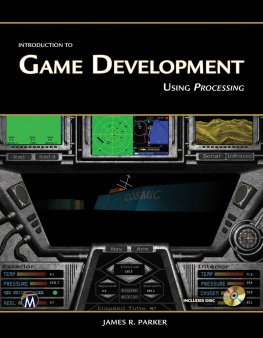
CAN EMERGING
TECHNOLOGIES MAKE A
DIFFERENCE IN DEVELOPMENT?
In this innovative and entirely original text, which has been thoughtfully edited to insure coherence and readability across disciplines, scientists and practitioners from around the world provide evidence of the opportunities for, and the challenges of, developing collaborative approaches to bringing advanced and emerging technology to poor communities in developing countries in a responsible and sustainable manner. This volume will stimulate and satisfy readers seeking to engage in a rich and challenging discussion, integrating many strands of social thought and physical science. For those also seeking to creatively engage in the great challenges of our times for the benefit of struggling farmers, sick children, and people literally living in the dark around the world, may this volume also spark imagination, inspire commitment, and provoke collaborative problem solving.
Rachel A. Parker is a Research Staff Member at the IDA Science and Technology Policy Institute. She received her PhD in Sociology from the University of California, Santa Barbara where she worked with Richard Appelbaum at the NSF-funded Nanoscale Science and Engineering Center, Center for Nanotechnology in Society; her research focuses on issues relating to emerging technologies and globalization.
Richard P. Appelbaum is MacArthur Chair in Global & International Studies and Sociology at the University of California, Santa Barbara. He is co-PI at the NSF-funded Nano-scale Science and Engineering Center, Center for Nanotechnology in Society, where he directs the interdisciplinary research group on globalization and nanotechnology.
CAN EMERGING
TECHNOLOGIES
MAKE A DIFFERENCE
IN DEVELOPMENT?
Edited by
RACHEL A. PARKER
IDA Science and Technology Policy Institute
RICHARD P. APPELBAUM
University of California, Santa Barbara
First published 2012
by Routledge
711 Third Avenue, New York, NY 10017
Simultaneously published in the UK
by Routledge
2 Park Square, Milton Park, Abingdon, Oxon OX14 4RN
Routledge is an imprint of the Taylor & Francis Group, an informa business
2012 Taylor & Francis
The right of the editors to be identified as the authors of the editorial material, and of the authors for their individual chapters, has been asserted in accordance with sections 77 and 78 of the Copyright, Designs and Patents Act 1988.
All rights reserved. No part of this book may be reprinted or reproduced or utilized in any form or by any electronic, mechanical, or other means, now known or hereafter invented, including photocopying and recording, or in any information storage or retrieval system, without permission in writing from the publishers.
Trademark notice: Product or corporate names may be trademarks or registered trademarks, and are used only for identification and explanation without intent to infringe.
Library of Congress Cataloging in Publication Data
Can emerging technologies make a difference in development/edited by Rachel A. Parker, Richard P. Appelbaum.
p. cm.
1. Technological innovationsEconomic aspects. 2. Economic development. 3. Regional economic disparities. I. Parker, Rachel A.
II. Appelbaum, Richard P. HC79.T4C366 2011
338064dc23 2011030235
ISBN: 9780415884327 (hbk)
ISBN: 9780415884334 (pbk)
ISBN: 9780203135686 (ebk)
Typeset in Minion by Swales & Willis Ltd, Exeter, Devon
Printed and bound in the United States of America on acid-free paper
by Walsworth Publishing Company, Marceline, MO.
This book is dedicated to Karen Shapiro and James Walsh, whose enthusiasm and support for this and all of our projects isand always has beenparamount.
CONTENTS
CONTRIBUTORS
Richard P. Appelbaum is MacArthur Chair in Global & International Studies and Sociology at the University of California, Santa Barbara. He is co-PI at the NSF-funded Nanoscale Science and Engineering Center, Center for Nanotechnology in Society, where he directs the interdisciplinary research group on globalization and nanotechnology. His recent books include Behind the Label: Inequality in the Los Angeles Garment Industry (with Edna Bonacich); Rules and Networks: The Legal Culture of Global Business Transactions (co-edited with William L.F. Felstiner and Volkmar Gessner); and Towards a Critical Globalization Studies (co-edited with William I. Robinson).
Rajiv G. Aricat is a doctoral student in the Wee Kim Wee School of Communication & Information, Nanyang Technological University, Singapore. Prior to that Rajiv worked in the editorial departments of various media organizations and web portals in New Delhi. Rajiv's Master of Philosophy (MPhil) dissertation from Jawaharlal Nehru University, New Delhi (2004) attempted a post-structuralist reading of a literary text in Malayalam. He is a recipient of the graduate award offered by Singapore Internet Research Centre, Singapore, under the program Strengthening ICTD Research Capacity in Asia. Under this project, he currently works among temporary migrant workers from South Asia in Singapore to investigate how ICTs help them acculturate to their new culture.
Arul Chib is an assistant professor at Nanyang Technological University, and is the assistant director of the Singapore Internet Research Center. He examines the impact of development campaigns delivered via a range of innovative information and communication technologies (ICTD). The theoretical deliberation explicates the mechanisms underlying the process of impact; while taking a critical and evidence-based perspective regarding sustainability and scalability of technological interventions, as a counter to prevailing positivistic views. He has contributed to the conceptual progress of the discipline by proposing theoretical frameworks of analysis, including the ICT for healthcare development model, and the Technology-Community-Management model. Dr. Chib pursues action-oriented research with marginalized communities in cross-cultural contexts, particularly in resource-constrained environments. He has examined the impact of mobile phone usage in healthcare by community-based workers in the remote Himalayan regions of India and Nepal, and in tsunami-ravaged Aceh, Indonesia. He is currently conducting fieldwork on technology usage within healthcare systems in the rural settings of Arua, Uganda, Uttaradit, Thailand, and Xi'an, China.
Susan Cozzens is Associate Dean for Research in the Ivan Allen College of liberal arts at the Georgia Institute of Technology in Atlanta, Georgia. She has been active in science and innovation policy for over 25 years. She has served the US National Science Foundation as a policy analyst and later Director of the Office of Policy Support and member of the senior leadership team. She has consulted widely within the United States and around the world on science and innovation policy issues. She is past editor of Research Evaluation and Science, Technology, & Human Values, and senior consulting editor for Science and Public Policy. She has published over 50 articles and book chapters and authored or edited four books. Her current research is on equity, equality, and development, with a focus on science and innovation policies in developing countries.




